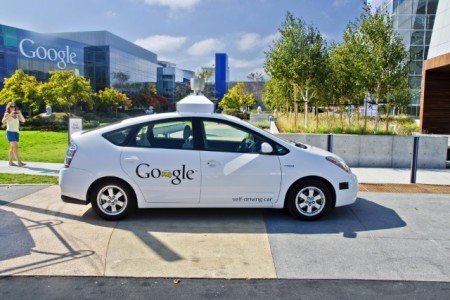Kevin Ashton, the man who invented the expression ‘Internet of Things,’ foresees that by 2030, self-driving cars will be the norm.
Kevin Ashton, Massachusetts Institute of Technology’s (MIT) Auto-ID Center founder, author of the book “How to Fly a Horse: The Secret History of Creation, Invention, and Discovery”, and inventor of the term ‘Internet of Things‘, believes that it’s possible to forecast the technology of the future just evaluating past trends.
At the end of the 20th century, Ashton invented the term ‘Internet of Things’, which is how we now understand the network of smart gadgets, from phones to household appliances, which learn to talk and understand each other. In thinking about smart tags for labeling products, he foresaw the almost ubiquitous connectivity we enjoy today, reads CNET.
“Predicting the future is easy,” Ashton says. “Believing is hard.” However, Ashton tries to look into the less-distant future. He says that in 15 years, almost everybody will use self-driving vehicles.
While delivering his keynote speech at Microsoft’s Future Decoded event in London, Mr. Ashton says that self-driving cars are a vivid example of the powerful and developing Internet of Things at work. So, he predicts that by 2030 , that kind of vehicles will be used almost by everybody.
Moreover, the question won’t be “Are self-driving cars safe?” but “Are human-driven cars safe?”, reports The Inquirer. According to the Association for Safe International Road Travel, around 3,000 people are killed on the roads every day by human-driven cars, and most of these deaths are caused by human error. In contrast to that, there have been no serious accidents involving autonomous vehicles, points out Aston.
Actually, we can say that self-driving vehicles represent the vision of the Internet of Things. So far, the abovementioned cars are going to use various sensors that will report their presence and discover their immediate environment. Today, the technology can be observed only in prototype vehicles, but it’s being seriously explored by many tech giants and automakers. So, EE, Britain’s biggest mobile network, is going to connect driverless cars to its new 4G network betting big on the ‘Internet of Things’.
“When you project yourself forward, the Teslas of this world are already piloting self-driving applications, a self-driving application, of course, needs a very high-speed mobile network to avoid accidents. That’s the idea with this 4G machine-to-machine platform,” says EE CEO Olaf Swantee.
In general, the whole of the Internet of Things market is going to grow and develop rapidly. “Market researcher IDC puts that growth at an average of 13 percent each year through 2020, by which point billions of objects will be connected and the industry could be worth $3 trillion,” reads CNET.
So far, the Internet of Things is not connected kettles, smart bottles and shavers that tell you when you’ve forgotten to shave, says Ashton. “The Internet of Things is a wireless sensor platform. It is about turning the world into data.”
next